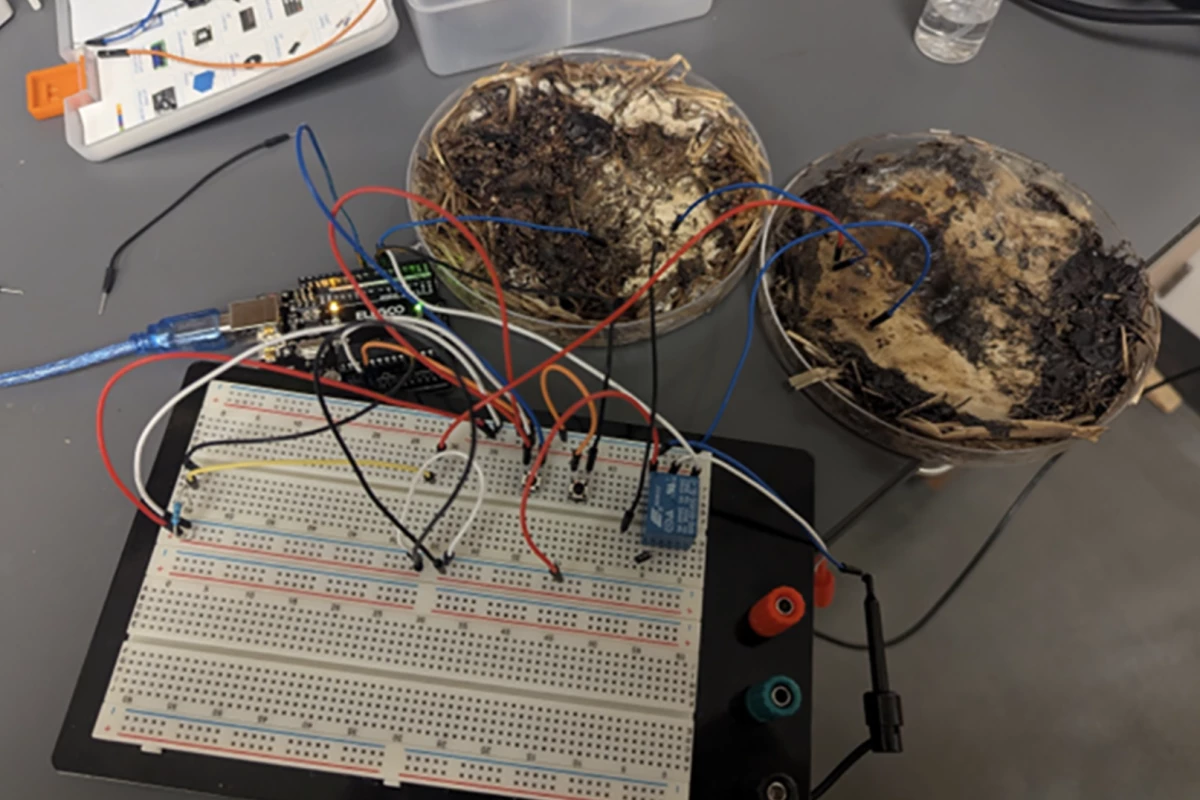Researchers at Ohio State University have demonstrated that shiitake mushrooms can function as living processors, emulating the capabilities of traditional semiconductor chips while boasting a significantly lower environmental impact. This breakthrough could pave the way for a new generation of eco-friendly computing technologies.
The study, led by John LaRocco, a research scientist at the university’s College of Medicine, reveals that fungi can be trained to mimic memristors—microscopic components integral to data processing and storage in computer chips. The findings suggest that devices based on shiitake mushrooms exhibit reproducible memory effects akin to those found in conventional semiconductor-based technology.
LaRocco emphasized the advantages of this innovation: “Being able to develop microchips that mimic actual neural activity means you don’t need a lot of power for standby or when the machine isn’t being used. That’s something that can be a huge potential computational and economic advantage.”
Memristors, short for “memory resistors,” are circuit elements that adjust their resistance based on the amount of current that has passed through them, essentially retaining memory of previous electrical activity. Traditional memristors commonly rely on metal oxides or silicon, which require high temperatures and rare-earth minerals for their production. In contrast, the mycelium of fungi—the underground network that allows mushrooms to feed and communicate—can be cultivated at room temperature and is compostable at the end of its lifecycle.
In this research, the team grew shiitake and button mushrooms on an organic substrate in Petri dishes until a dense mycelial mat formed. These mats were dehydrated and linked to electronic circuits. When a range of voltages, from 10 Hz to 5,850 Hz, was applied, the circuits displayed characteristics similar to organic memristors.
“We connected electrical wires and probes at different points on the mushrooms because distinct parts of it have different electrical properties,” noted LaRocco. The experimentation revealed that after two months, the mushroom memristor could toggle between electrical states and retain information at a rate of up to 5,850 signals per second, achieving around 90% accuracy. At lower frequencies, it demonstrated up to 95% switching accuracy.
While the performance declined with increasing voltage frequency, the researchers noted that connecting more fungal components could mitigate this issue. Although the concept of using mushrooms for electronics isn’t entirely new, there has been a growing interest in harnessing fungi for computing and energy generation.
The mycelium’s ability to form a self-repairing, three-dimensional network allows it to transmit electrical impulses similarly to neurons in a brain. Unlike silicon, this organic system is flexible, scalable, and capable of adapting to various configurations, making it a compelling alternative to current synthetic models.
Qudsia Tahmina, an associate professor in electrical and computer engineering at Ohio State, highlighted the broader implications of this research. “Society has become increasingly aware of the need to protect our environment and ensure that we preserve it for future generations. So that could be one of the driving factors behind new bio-friendly ideas like these.”
Although the development of organic memristors is still in its infancy, the researchers are focused on refining the growth processes of fungi to produce devices suitable for practical applications. There is also ongoing exploration into utilizing fungi for battery technology and electricity generation.
“Everything you’d need to start exploring fungi and computing could be as small as a compost heap and some homemade electronics, or as big as a culturing factory with pre-made templates,” LaRocco stated, underscoring the accessibility of this innovative approach.
The findings of this research were published in the journal PLOS One, marking a significant step towards integrating sustainable materials into the future of computing technology.




































































